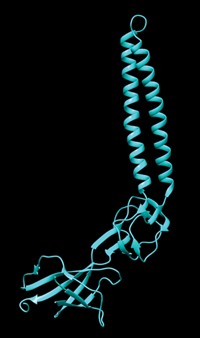Advertisement
Grab your lab coat. Let's get started
Welcome!
Welcome!
Create an account below to get 6 C&EN articles per month, receive newsletters and more - all free.
It seems this is your first time logging in online. Please enter the following information to continue.
As an ACS member you automatically get access to this site. All we need is few more details to create your reading experience.
Not you? Sign in with a different account.
Not you? Sign in with a different account.
ERROR 1
ERROR 1
ERROR 2
ERROR 2
ERROR 2
ERROR 2
ERROR 2
Password and Confirm password must match.
If you have an ACS member number, please enter it here so we can link this account to your membership. (optional)
ERROR 2
ACS values your privacy. By submitting your information, you are gaining access to C&EN and subscribing to our weekly newsletter. We use the information you provide to make your reading experience better, and we will never sell your data to third party members.
Microbiome
Microbiome modifies worm’s food choices
Gut bacteria can hijack the olfactory system of C. elegans
by Laura Howes
June 20, 2020
| A version of this story appeared in
Volume 98, Issue 24

Many animals coexist in a relationship with the diverse communities that live in and on them. Known as microbiomes, these communities are made up of fungi, viruses, and bacteria. Researchers know that several bacteria thatlive in the guts of hosts produce bioactive molecules such as neurotransmitters. Scientists have hypothesized that those compounds can alter a host's mood or behavior. Now, working with the small worm Caenorhabditis elegans, Piali Sengupta's group at Brandeis University has not only shown that a bacteria in the worm's gut microbiome quantitatively alters behavior, but also the molecular basis of that alteration (Nature 2020, DOI: 10.1038/s41586-020-2395-5). The bacterium responsible is a strain of Providencia alcalifaciens called P. alcalifaciens JUb39, which produces the neurotransmitter tyramine. C. elegans converts this compound to octopamine, which then activates specific neurons in the worm and decreases its aversion to bacterially produced volatiles such as octanol. This means the worm changes its choice of food to benefit P. alcalifaciens and maybe also the worm.





Join the conversation
Contact the reporter
Submit a Letter to the Editor for publication
Engage with us on Twitter